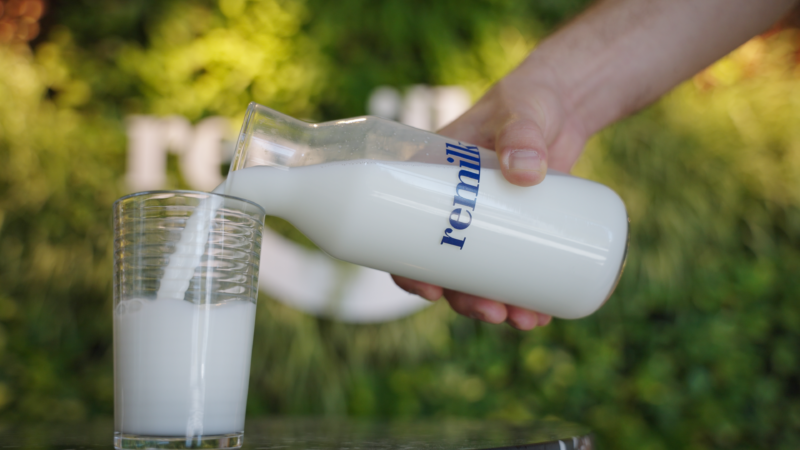Exclusive: Remilk CEO on Health Canada approval for its animal-free dairy

Remilk, a foodtech company specializing in the production of animal-free dairy through precision fermentation, receives Health Canada’s “Letter of No Objection.” It is the first producer of animal-identical protein to receive approval from Canada. This means Remilk can now sell its animal-free BLG protein in the country for use in a variety of dairy products like milk, ice cream, yogurt, and cream cheese.
Serial entrepreneur Aviv Wolff and Dr. Ori Cohavi, who holds a PhD in biochemistry and has worked in R&D at a variety of biotech firms, founded Remilk because of “a shared dedication to reinvent dairy, by removing cows from the milk-making process.” Canada is the fourth country after the U.S., Singapore and Israel to approve Remilk’s product.
Through an e-interview, Wolff, Remilk’s co-founder and CEO, shared that Health Canada’s approval process was extensive and thorough.
“We met with Health Canada’s team and provided them with the data they requested, which was used for a rigorous examination of our protein’s safety and similarity to cow-derived milk protein. We are thrilled and honoured to have received the Letter of No Objections attesting to both,” said Wolff.
“Health Canada’s acceptance of our animal-free protein is additional validation of its safety and purity. Canada’s is the fourth separate health administration to conduct thorough examinations of our protein and each, individually, found it to be equivalent to its traditional counterpart,” added Dr. Cohavi, co-founder and CTO at Remilk, through a media statement. “Regulatory approvals serve to not only open new markets for the sale of our proteins, but also as reassurance for both industry and consumers that our protein is the same milk protein they have been consuming and enjoying for decades.”
This approval marks a significant milestone for Canada’s foodtech sector, which is very much in its infancy. It also opens the door for many new novel ingredients to enter the Canadian market.
“This milestone not only propels Canada into the forefront of sustainable food solutions, but also signals a transformative era in our food supply. This approval paves the way for a more resilient and eco-friendly future, setting a precedent for innovation in Canada’s approach to feeding its growing population,” said Dana McCauley, CEO, Canadian Food Innovation Network (CFIN).

Aviv Wolff
The Remilk team sees great potential in the Canadian market and its consumers who are actively seeking healthy, nutritious food options.
“Remilk’s animal-free protein enables the production of craveable products that will allow Canadian consumers to indulge in the same experience of tase and texture they love, with added health benefits, such as no lactose, cholesterol and hormones. As for food companies, it’s important to many North American-based companies to be able to offer products in both U.S. and Canada. We can now provide that to them,” explained Wolff.
Remilk uses a patented approach to manufacture its protein at commercial scale in several locations around the world. However, precision fermentation is an energy-intensive process. The overall environmental impact of the process is unclear. I asked Wolff about this.
“We’ve recently completed our life-cycle analysis (LCA), conducted by an external consulting firm, following our entire production process from ‘cradle-to-gate’ or from the footprint of our raw materials to our final product: BLG milk-protein powder. As per LCA best-practice guidelines, we will only publish our results once we complete the process of independent peer review of the report.
“Without sharing specific numbers, we can already say our LCA reveals substantial reduction in resource usage of water and land, and a substantial decrease in greenhouse gas emission compared to cow-milk protein production. As for energy, the advantage of industrial production lies both in our ability to choose manufacturing locations and our control over every aspect of the process. We carefully choose locations that allow for green energy usage and fine-tune our process to ensure maximum efficiency in every phase. Furthermore, precision fermentation allows for rapid improvements in yield which, in turn, improve resource usage even further,” he clarified.
Despite the lack of clarity on Remilk’s carbon footprint, the approval is a historic one for Canada’s food and beverage manufacturing industry. It offers manufacturers and consumers an alternative to traditional dairy without losing the nutritional benefits associated with cow milk-based products.
Source: www.foodincanada.com

